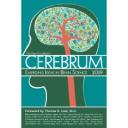 According to Dr. Ariely, a professor of behavioral economics at Duke, and author of the interesting book, Predictably Irrational, the offer of a huge bonus does not improve cognitive performance. He makes his argument in a recent piece in the New York Times, What’s The Value of A Big Bonus?.
According to Dr. Ariely, a professor of behavioral economics at Duke, and author of the interesting book, Predictably Irrational, the offer of a huge bonus does not improve cognitive performance. He makes his argument in a recent piece in the New York Times, What’s The Value of A Big Bonus?.
In the article he describes several experiments that demonstrate those offered very large bonuses actually do worse on a cognitive task than those offered a medium or even small bonus.
Many have pointed out that money may not motivate those that think for a living. But this research goes further:
Given in the wrong dose (too much) money may worsen our performance on tasks that require learning, thinking, decision-making, creativity and other forms of cognition.
We need to be careful to design compensation and reward systems for how minds actually work, not how we think they should work.

 For some first-hand insights into the cognition of cults and deprogramming check out this TED video on how cults rewire the brain. It is about 6 minutes long and contains some graphic images. Deprogramming, now that’s a truly hard cognitive design challenge!
For some first-hand insights into the cognition of cults and deprogramming check out this TED video on how cults rewire the brain. It is about 6 minutes long and contains some graphic images. Deprogramming, now that’s a truly hard cognitive design challenge!








